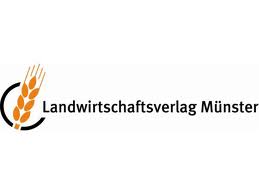Finance & Controlling
The term ‘finance’ refers to the recording, monitoring and controlling of the flow of money, goods and services in terms of quantity and value in order to ensure the economic efficiency of their use. Finance thus forms the basis of corporate management and is divided into the areas of internal accounting for corporate management and external accounting for stakeholders.
Our Service
Consultancy during the selection and implementation of financial accounting- and controlling software:
- Potential- and actual process analyses
- Drawing up specifications
- Market research – and overviews
- Tenders and bid comparisons
- Organisation and moderation of supplier workshops
- Specification development and project set-up
- Contract negotiation
- Efficient project protection assurance through acceptance management
- Coaching of project teams and moderation of steering committees
Accounting concept
- Concepts for strategic orientation
- Analysis of weaknesses and need for action
- Desig of target processes and process optimisation
- Desig of corporate performance management
- Implementation planning and cost/benefit analysis
Our Experiences
 Wirecard AG
Wirecard AG
Wirecard AG
Unternehmen
Branche: Finanzdienstleistungen; Mitarbeiter (User): 50 (>1600); Produkte: Zahlungslösungen (online/mobil/POS), Risikomanagement, Acquiring, Issuing, Banking, Callcenter
Projekt
Anwendungsbereich: Finanzbuchhaltung/Controlling; Durchlaufzeit: 7 Monate
Nutzung IT-Matchmaker für: kompletter Auswahlprozess Cornelsen Verlagsholding GmbH
Cornelsen Verlagsholding GmbH
Cornelsen Verlagsholding GmbH
Unternehmen
Branche: Medien, Verlage; Mitarbeiter (User): 550 (200); Produkte: Bücher
Projekt
Anwendungsbereich: FiBu/ReWe; Durchlaufzeit: 9 Monate; Nutzung IT-Matchmaker für: kompletter Auswahlprozess FEV Gruppe
FEV Gruppe
FEV Gruppe
Unternehmen
Branche: Entwicklungsdienstleister Automobilindustrie; Mitarbeiter (User): 3000 (700); Produkte: Engineering-Services
Projekt
Anwendungsbereich: ERP; Durchlaufzeit: 15 bzw. 9 Monate; ERP-Upgrade Deutschland und USA; Implementierung eines gruppenweiten BI-Tools; Einführung eines CRM-Tools ; Konzeption und Umsetzung eines Gruppen-Reportings mit KPI-Steuerung Landwirtschaftsverlag GmbH
Landwirtschaftsverlag GmbH
Landwirtschaftsverlag GmbH
Unternehmen
Branche: Verlag, Mitarbeiter (User): 540 (30)Projekt
Anwendungsbereich: Rechnungswesen; Durchlaufzeit: 7 Monate
Nutzung IT-Matchmaker für: kompletter Auswahlprozess
 Managing ConsultantDavid Weislmeier
Managing ConsultantDavid Weislmeier
David Weislmeier Managing Consultant
David Weislmeier hat Betriebswirtschaftslehre mit Schwerpunkt Rechnungswesen und Controlling an der FH München studiert. Daneben hat er einen Bachelor in International Accounting und das CINA-Zertifikat des Instituts für Internationale Rechnungslegung.
Seit mehr als 6 Jahren berät er Unternehmen bei der Auswahl und Einführung von Unternehmenssoftware.
Roadmap as a tool for optimising your financial systems
Due to the wide range of application scenarios of the individual systems or modules in the user companies, it is important to optimise the following factors individually for the company:
- Strategic and medium-term planning incl. IT-roadmap
- Full integration vs. ‘best of breed’ approach (system architecture)
- Integration of up- and downstream systems (e.g., CRM, ERP, ECM/DMS, travel expense portal, BI, etc.)
- Organisation of data management (‘master data sovereignty’)
- Efficient process mapping of operational value creation
- Acceleration of the period-end closing and reporting process (‘fast close’)
- Use of evaluation options within the framework of the Business Intelligence approach
- Integration of a rolling forecast
- Planning and consolidation requirements
- Liquidity management
- External reporting to stakeholders (banks, controlling bodies and owners)
This means in particular for the financial sector:
- Mastering complexity
- High-quality and timely financial statements and reporting
- Ensuring the return of individual adjustments to standard functions
Here we can support you adequately with our expertise and work with you to develop the right orientation for your software solution.
Finance Market: Status Quo and Trends
Finance software is usually connected to an ERP-system or is an integral part of it. Reporting functionalities are included in the components of the finance systems (financial accounting and controlling) as well as in business intelligence. Planning and forecasting can be depicted in Business Intelligence as well as in the finance system.

The market for financial systems is diverse and unmanagable. Around 100 solutions are currently available on the German market. Essentially, the market can be divided into two main groups:
- Financial accounting specialists
Software solutions whose focuse is on financial accounting (accounts payables, accounts receivable, general ledger accounting as well as cost accounting and controlling). In addition, providers of this group usually offer solutions for assets accounting and liquidity management. Interfaces to common ERP systems are usually available as standard. - Finance suite providers
Here, the finance-modules are part of the ERP system. In recent years, suite providers have significantly expanded the range of functions. Thus, some sophisticated finance solutions are available on the market.
Since the last millennium, the financial systems’ range of functions expanded in Germany. Back then, it solely focused on accounting and controlling. However, the requirements on functionality increased dramatically.
Nowadays, the support from multiple chart of accounts for different countries is rather standard than a distinguishing feature. An increased demand is especially given in the so-called ‘compliance-area’. These are requirements that arise from laws, guidelines or codes. Additionally, requirements on the internal reporting system increased strongly. Hence, the graphical description of summarised-, up-to-the-minute data like turnover and its traceability are a great motivator for companies to renew their financial system.
Development of the finance-software market
Considering its functionality, the finance-software market can be currently described as quite dynamic. However, that is not due to the fact that customers are becoming more and more differentiated and functions are being individually upgraded. The horizontal expansion of the range of functions is not only limited to the integration of planning- and reporting functions – especially the legislator as well as the increasing economic internationalisation are drivers for new functions. Nevertheless, a real development cannot be identified. Instead, finance-software providers need to implement the required demands from legislators and global trends in order to survive on the market

